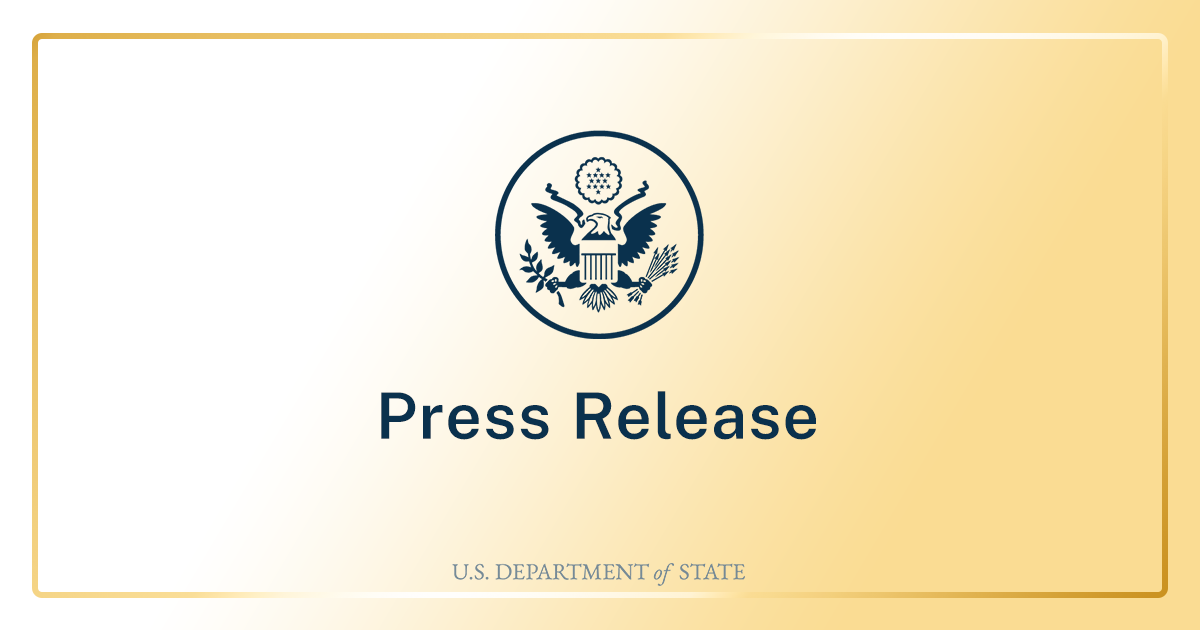During the 55th session of the UN Human Rights Council, the United States worked closely with UN Member States to highlight and address pressing human rights concerns and to uphold the universal values, aspirations, and principles that have underpinned the UN system since its founding. Our statements and positions underscored the U.S. commitment to promoting the universality of human rights, including by addressing discrimination, inequity, and inequality in all its forms.
This session, the United States advanced our priorities on the full range of human rights and fundamental freedoms including economic, social, and cultural rights, including:
Renewing the mandate of the Commission of Inquiry (COI) on Ukraine
The United States worked with Ukraine and cross-regional partners to renew the mandate of the COI, which has provided critical, credible reporting on human rights in Ukraine amid the intense polarization and mis- and disinformation surrounding Russia’s war of aggression. The United States was proud to co-sponsor the resolution to help ensure the COI can continue its work to collect and analyze evidence and inform accountability efforts.
Adopting the first ever UN resolution on the Rights of Intersex Persons
The United States was proud to co-sponsor this critical resolution that is a testament to the international community’s commitment to addressing and mitigating the challenges faced by intersex individuals. This resolution affirms our collective responsibility to uphold the inherent dignity of all persons, including intersex persons, and to foster a world where every person’s rights are recognized and respected.
Renewing the mandate of the Commission on Human Rights in South Sudan
The United States is part of the core group and proud to co-sponsor this resolution. The Commission’s contributions to accountability and transitional justice remain critical due to the government’s very limited implementation of transitional justice steps it committed to take under the 2018 revitalized peace agreement, as well as the atrocity risks and uncertain environment around elections scheduled for December 2024.
Renewing the mandates of the Special Rapporteur (SR) and Fact-Finding Mission (FFM) on the Human Rights Situation in Iran
The United States co-sponsored this resolution as the work of the SR and FFM remain critical to holding the Iranian regime to account for its ongoing repression of the Iranian people and its brutality against peaceful protestors, particularly women. The FFM report states that some of these acts may amount to crimes against humanity. The resolution ensures that Tehran’s ongoing repression of the Iranian people, in the context of the “Woman, Life, Freedom” protests that began in September 2022, will continue to be documented and addressed by the international community.
Renewing the mandate of the Commission of Inquiry (COI) on Syria
Thirteen years after the Assad regime’s brutal crackdown on peaceful protesters, the COI continues to credibly document widespread violations and abuses of human rights perpetrated by the Assad regime and other parties to the conflict in Syria, which is critical to advancing accountability for atrocities committed. The United States is part of the core group and co-sponsored this resolution, which condemned the ongoing abuses in Syria, particularly the regime’s abuses against detainees, welcomed the establishment and recent funding of the Independent Institution on Missing Persons in Syria, and renewed the COI mandate.
Supporting Freedom of Religion or Belief
The United States remains dedicated to fostering freedom of religion or belief and stands firm against hatred based on religious identity or belief. We strongly supported this resolution as every person, everywhere, has the right to freedom of thought, conscience, religion, and belief, including the freedom to change their beliefs or hold no belief.
Agenda Item 7
The United States opposes all action under the HRC’s Agenda Item 7, which is the only standing agenda item that singles out one country: Israel. We voted against all three resolutions under Item 7, several of which contained elements of long-standing concern to the United States. We also opposed the resolution on Accountability and Human Rights that was tabled under Agenda Item 2, which drew a number of unverified conclusions about Israel’s behavior. Throughout the session, we noted that far too many civilians have been killed in this conflict—Palestinian and Israeli alike. We strongly condemned Hamas’ brutal terrorist attack on October 7 and demanded the release of all remaining hostages. We have raised our deep concern for Palestinian and Israeli children tragically caught in violence. The United States continues to express grave concern over the rapid deterioration of the humanitarian situation in Gaza and called on all parties to abide by international law.
Other Priorities:
The United States co-sponsored resolutions to continue reporting on Belarus, DPRK, and Burma. We also joined consensus on resolutions on human rights technical assistance and capacity-building in Haiti, Mali, and South Sudan.
The United States also co-sponsored resolutions on thematic issues including: Disinformation, Torture, Genocide, Right to Work, Disabilities, Albinism, Hybrid Modalities, Rights of the Child, and Rights of persons belonging to national or ethnic, religious, and linguistic minorities. We also joined consensus on resolutions on Adequate Housing, Privacy, Culture of Peace, Right to Food, the Mandate of the Special Rapporteur on the human right to a clean, healthy, and sustainable environment, and the Mandate of Special Rapporteur in the field of cultural rights, among others.
Side Events:
A central highlight of this session was our event marking the anniversaries of Russia’s initial and subsequent full-scale invasions of Ukraine featuring Ukraine’s Permanent Representative to Geneva, Ambassador Yevheniia Filipenko, and a panel of three Ukrainian activists, who highlighted the human rights situation, need for economic assistance, and questions of justice and accountability stemming from the ongoing war.
Additionally, we hosted an event on Transnational Repression, a critical priority for the United States and a threat to global security and respect for human rights, which focused on the measures taken by governments to silence dissent and control opposition beyond their borders. The event increased awareness and understanding of transnational repression, identified key challenges and opportunities for collaboration, and presented strategies and recommendations for mitigating this growing human rights concern.
The United States co-sponsored several additional side events, including events on the DPRK, Belarus, Crimea, Russia, Nicaragua, Antisemitism, International Women’s Day, Cultural Rights, Disinformation, and Human Rights Defenders, Democracy, and Civil Space, among others.
Joint Statements:
The United States stood arm-in-arm with the EU in delivering a joint statement on the recent death of Aleksey Navalny in Russia. His death underscored the extraordinary brutality of Putin’s regime, not just to those outside its borders, but against Russians in Russia, including opposition figures, human rights defenders, and people expressing even a modicum of concern about the direction their leaders are taking them.
We also joined statements on Sri Lanka, Iran, Syria, Ethiopia, the Philippines, DPRK, Freedom of Association and Assembly, Persons with Disabilities, Local Government and Human Rights, Elections, and the UN Voluntary Fund for Victims of Torture, among others.



